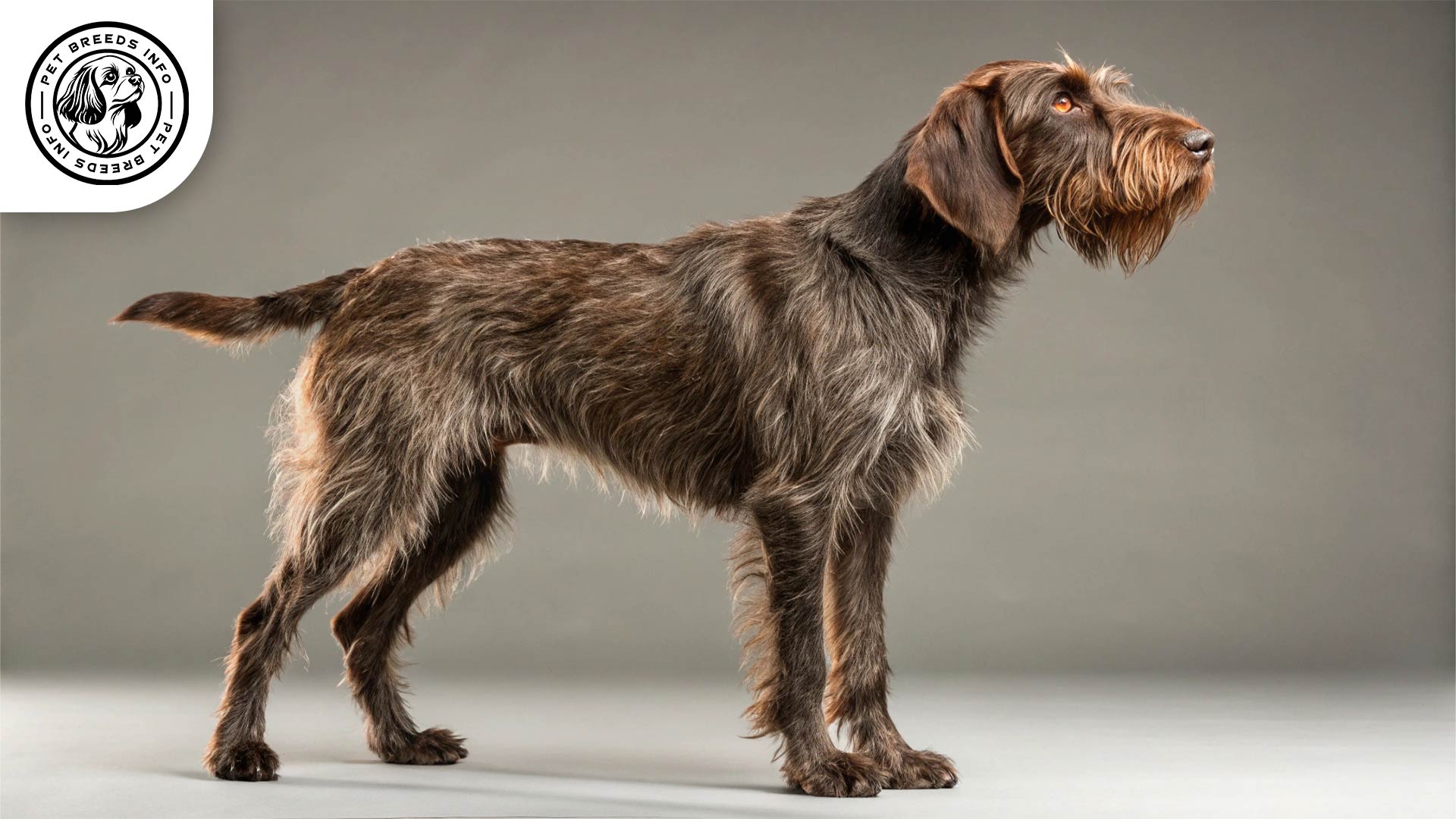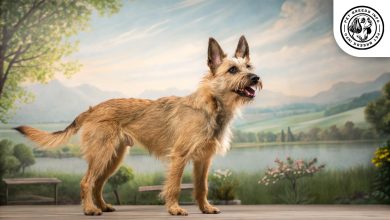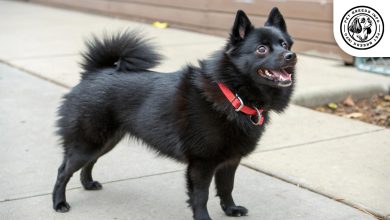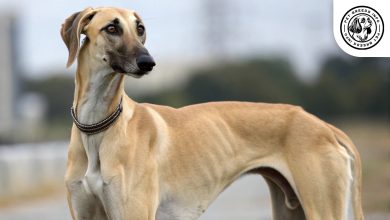Pudelpointer Dog Breed: Size, Health, Price & Personality
General Introduction of the Breed
The Pudelpointer is a versatile hunting dog breed that originates from Germany. Developed in the late 19th century, the Pudelpointer was created by crossing the Poodle with the English Pointer to combine intelligence, water-retrieving ability, and strong hunting instincts. The breed is well-known for its excellent tracking skills, strong endurance, and friendly demeanor.
Table of Contents
| Weight | 45-70 lbs (20-32 kg) |
| Lifespan | 12-14 years |
| Diet | High-protein kibble, wet food, raw diet |
| Care | Moderate grooming, high exercise needs |
| Health | Prone to hip dysplasia, eye issues, ear infections |
| Color | Liver, brown, black (no markings) |
| Nature | Loyal, intelligent, energetic |
| Price | $1,000-$2,500 |
Physical Characteristics
Pudelpointers are medium to large-sized dogs. Males typically stand between 22 to 27 inches in height and weigh around 55 to 70 pounds, while females are slightly smaller, measuring 21 to 25 inches and weighing 45 to 65 pounds.
The breed has a dense, wiry coat that provides protection from harsh weather conditions. Coat colors include liver, brown, and black, often with no markings.
Pudelpointers have expressive, medium-sized eyes that are usually brown or amber. Their ears are set high, medium in length, and hang close to the head. The tail is usually docked to a moderate length in some countries, but in others, it remains natural.
A defining characteristic of the Pudelpointer is its rough, weather-resistant coat and a well-muscled, athletic body built for endurance.
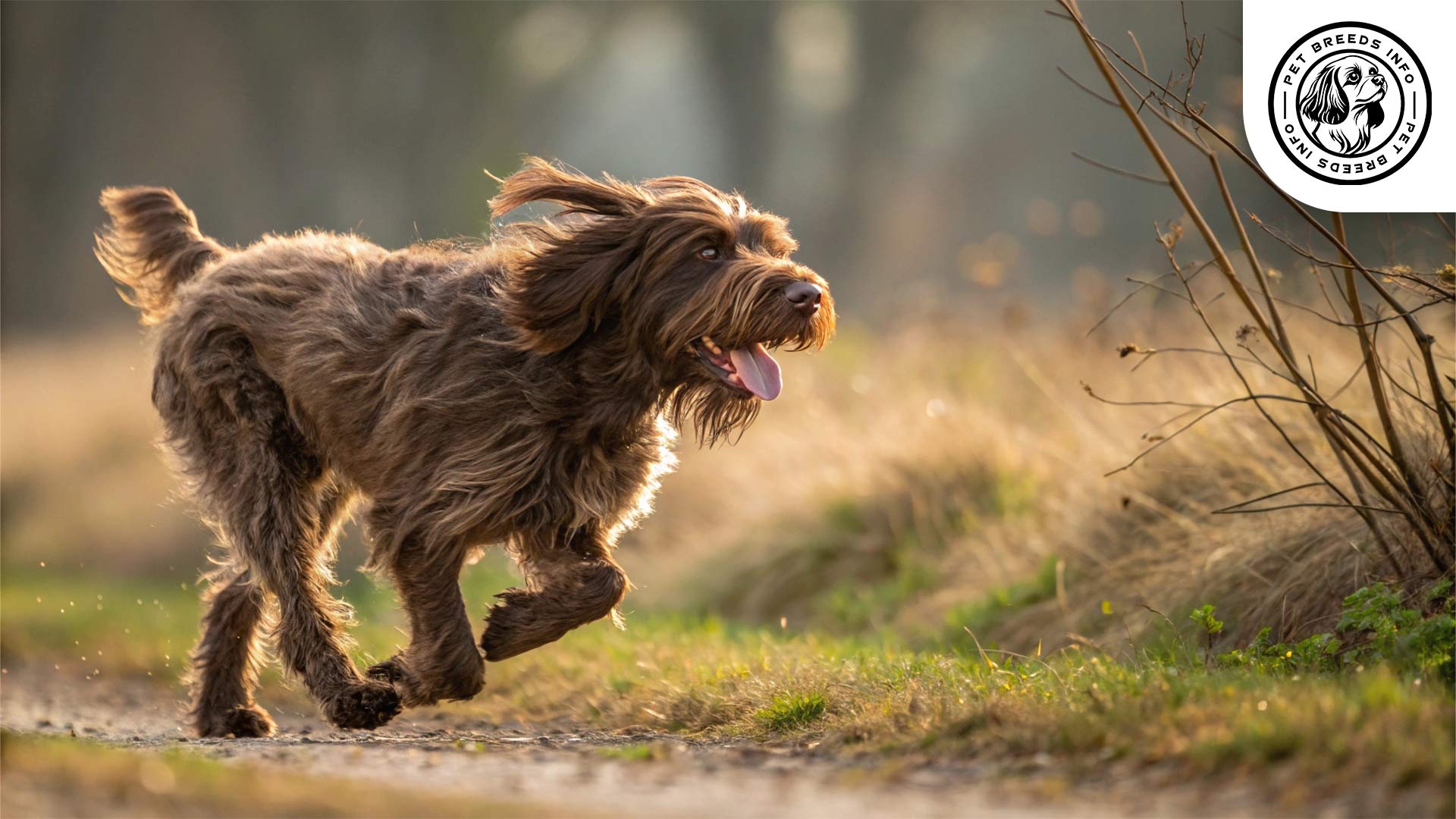
Personality and Temperament
Pudelpointers are highly intelligent and eager to learn, making them easy to train. They have high energy levels and require regular mental and physical stimulation.
They are deeply loyal and affectionate towards their owners, creating strong bonds with their families. With proper socialization, they interact well with children and other pets, though their hunting instincts may make them less compatible with small animals.
The breed has a strong prey drive, making them excellent hunters but requiring early socialization to ensure good behavior in home environments. They are sensitive to their surroundings and respond well to positive reinforcement training.
Care and Maintenance Requirements
Pudelpointers require a high level of daily exercise, including long walks, playtime, and hunting or retrieving activities. They thrive in homes with yards or active owners who can meet their energy needs. An apartment may not provide enough space unless daily exercise is guaranteed.
Their wiry coat requires moderate grooming, including weekly brushing to prevent matting and occasional hand-stripping to maintain coat quality. Shedding is minimal to moderate.
Read More: Perro de Presa Canario Dog
The breed is adaptable to different climates but may need protection in extreme heat or cold. Regular hygiene care such as nail trimming, ear cleaning, and dental care is essential to maintain their overall health and well-being.
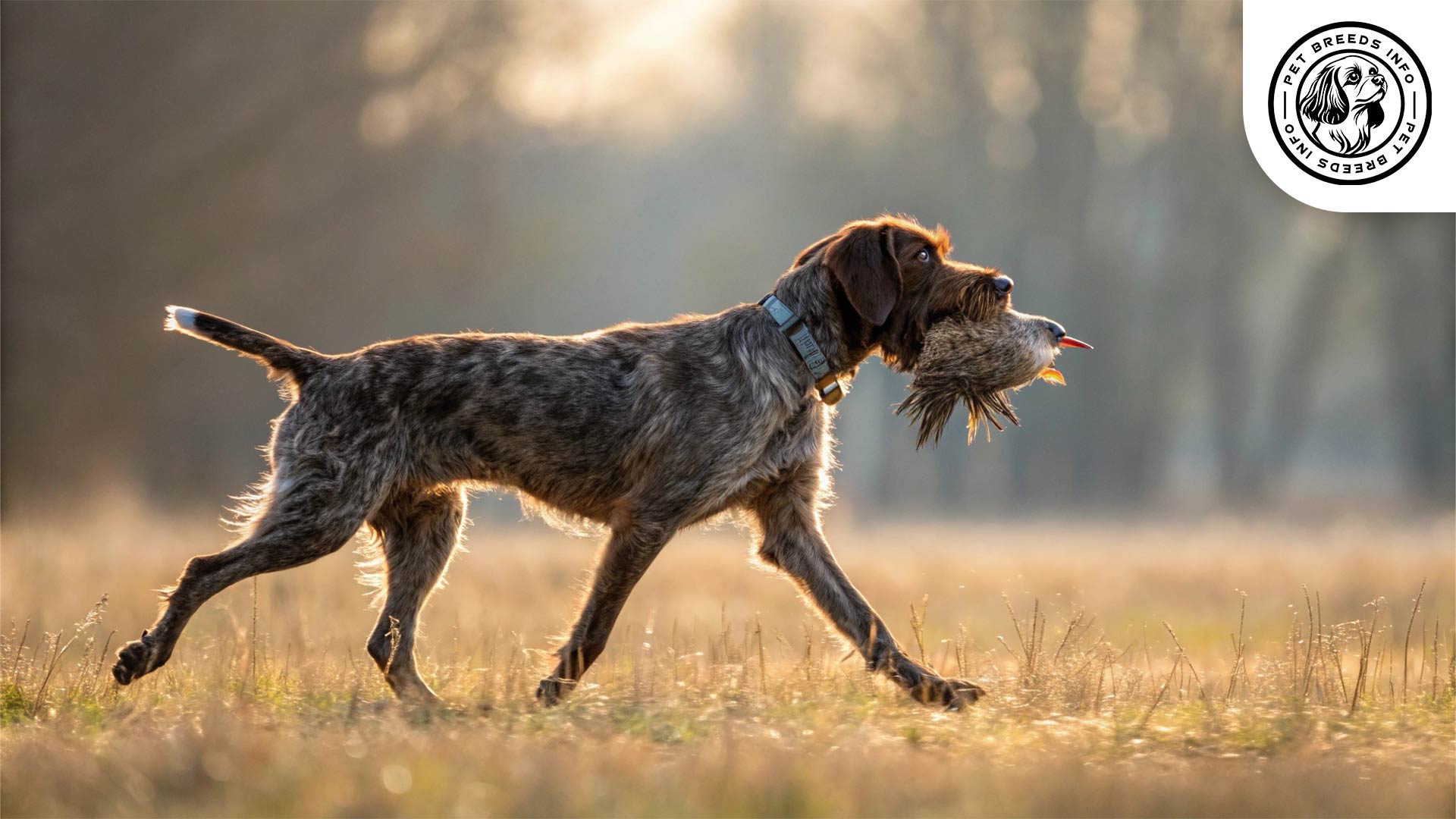
Diet and Nutrition
Pudelpointers thrive on a high-protein diet that supports their active lifestyle. A balanced diet of high-quality dry, wet, or raw food is recommended.
Avoid foods with artificial additives, excessive fillers, or grains that may cause allergies. Toxic foods such as chocolate, onions, grapes, and excessively fatty foods should always be avoided.
Portions should be controlled based on their activity level, typically divided into two meals per day to maintain optimal weight and energy levels.
Health and Common Medical Issues
Pudelpointers are generally healthy dogs but may be susceptible to some hereditary conditions such as hip dysplasia, eye issues, and ear infections.
Routine vet check-ups, vaccinations, and preventive care are necessary to maintain their long-term health. Their average lifespan is 12 to 14 years.
Training and Behavior Management
Training a Pudelpointer is relatively easy due to their intelligence and eagerness to please. Early training and consistent positive reinforcement techniques are recommended.
Read More: Podenco Canario Dog
Basic obedience training, socialization with other animals, and exposure to different environments help them develop into well-behaved companions.
Firm but gentle guidance is crucial to manage their energy levels and temperament effectively.
Interaction with Other Animals and Humans
Pudelpointers are affectionate with their families and excellent with children. They can get along with other pets if socialized early, but smaller animals may trigger their hunting instincts.
They are suitable for both families and active individuals who can meet their exercise and attention needs. Pudelpointers may form strong bonds with their owners and prefer companionship over solitude.
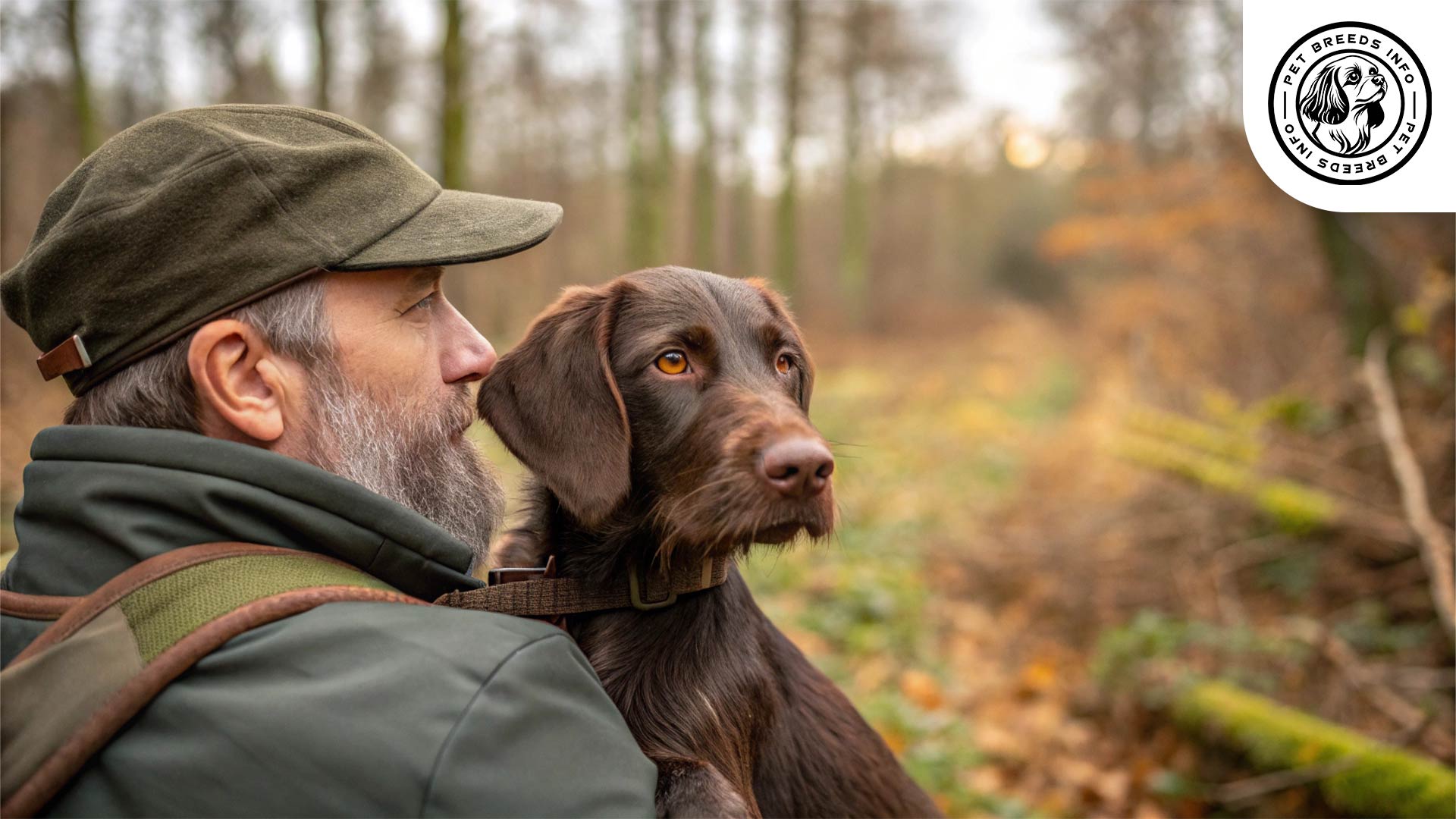
Price and Availability
The cost of a purebred Pudelpointer typically ranges from $1,000 to $2,500, depending on the breeder, lineage, and availability.
When purchasing or adopting a Pudelpointer, it is crucial to choose a reputable breeder or adoption center that prioritizes health testing and ethical breeding practices.
Rescue organizations may occasionally have Pudelpointers available for adoption at a lower cost, providing an excellent opportunity to give a dog a loving home.
Conclusion and Final Thoughts
The Pudelpointer is an excellent choice for active individuals or families who enjoy outdoor activities and can provide sufficient exercise and engagement.
They require space, regular exercise, and consistent training, making them best suited for homes with yards or owners who engage in hunting, hiking, or other active endeavors.
Read More: Peruvian Inca Orchid Dog
Before choosing a Pudelpointer, potential owners should consider their high energy levels, training requirements, and strong attachment to their families. With proper care, this versatile and loyal breed can be a wonderful lifelong companion.
FAQ
Is the Pudelpointer good with families?
Yes, they are affectionate, loyal, and great with children when socialized properly.
How much exercise does the Pudelpointer need?
They require daily exercise such as long walks, playtime, and hunting activities to keep them mentally and physically engaged.
Does the Pudelpointer shed a lot?
It sheds minimally to moderately and requires weekly brushing and occasional hand-stripping.
Can the Pudelpointer live in an apartment?
They are better suited for homes with yards or active owners, as they need plenty of space and exercise.
